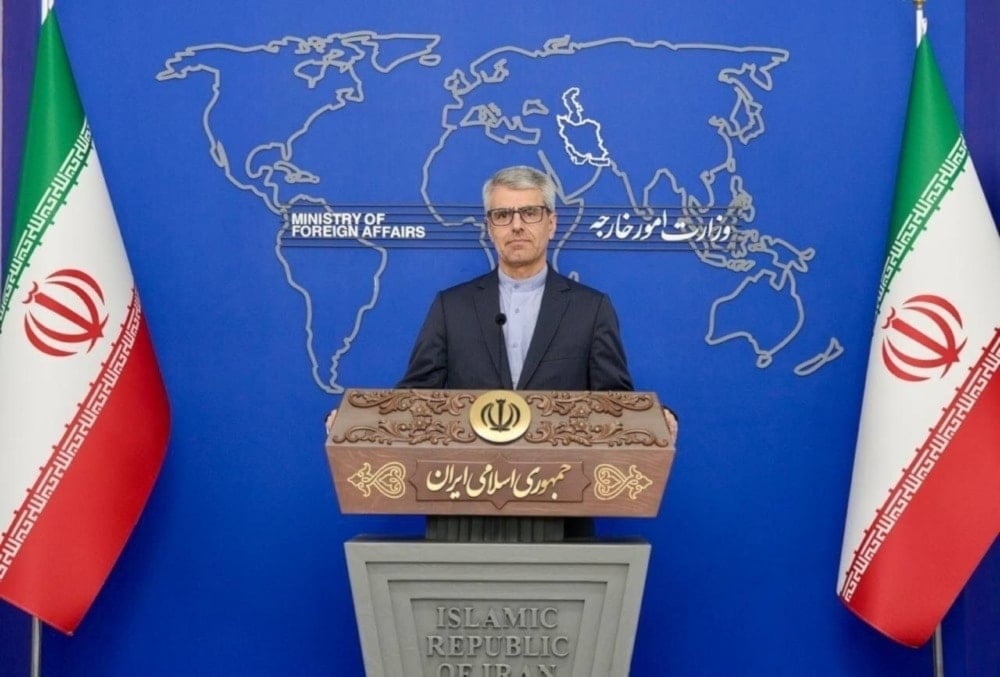Iran continues civilian nuclear program with IAEA oversight: MFA spox
The Iranian Foreign Ministry's spokesperson, Esmaeil Baghaei, reaffirms Iran’s commitment to transparency and adherence to international standards.
-

An undated image of the Iranian Foreign Ministry's spokesperson, Esmail Baghaei. (IRNA)
The Iranian Foreign Ministry's spokesperson Esmaeil Baghaei stated, on Saturday, that Iran’s nuclear activities are “transparent” and are being closely monitored by the International Atomic Energy Agency (IAEA), emphasizing the peaceful intentions behind the country’s nuclear program.
In response to recent remarks by IAEA Director General Rafael Grossi, who claimed that Iran is rapidly increasing its uranium enrichment, Baghaei explained that Grossi’s statements, made at the Manama Dialogue conference in Bahrain, reflect the "aggressive and unconstructive" stance taken by the US, Britain, France, and Germany at the IAEA Board of Governors. These countries, he noted, pushed for a resolution targeting Iran during the meeting.
The top Iranian official also pointed out Grossi's visit to Iran in mid-November, during which agreements were made to enhance technical cooperation between Iran and the UN nuclear agency.
Baghaei noted that Grossi had proposed several initiatives, but the US and European powers undermined his efforts by pressuring the IAEA’s Board of Governors.
Reaffirming Iran’s commitment to transparency and international standards, Baghaei stated that Iran’s nuclear activities are conducted within the framework of the Treaty on the Non-Proliferation of Nuclear Weapons (NPT) and the Comprehensive Safeguards Agreement, under IAEA supervision.
He emphasized, “The IAEA has been notified about the Islamic Republic’s recent nuclear activities and they will remain under its constant supervision.”
Iran could militarize nuclear program amid pressures: Araghchi
Iranian Foreign Minister Abbas Araghchi cautioned, on November 28, that ongoing Western threats to reimpose United Nations sanctions could push Iran's nuclear file toward militarization.
Speaking in Portugal, Araghchi underscored that such pressure might drive internal debates in Iran toward pursuing nuclear weapons—a course previously excluded from the country's security strategy.
During his remarks, Araghchi criticized the European Troika (France, Germany, and the UK), accusing them of adopting a confrontational stance against Iran. He also highlighted Tehran's decision to activate thousands of advanced centrifuges as a direct response to what he described as "nonconstructive policies" from these nations.
"Iran previously possessed the capability and knowledge to develop nuclear weapons, but this option has never been part of our strategic framework," Araghchi stated. He added that Iran has no current intention to enrich uranium beyond 60% but emphasized the need for equitable collaboration to resolve the nuclear issue honorably.

 3 Min Read
3 Min Read








